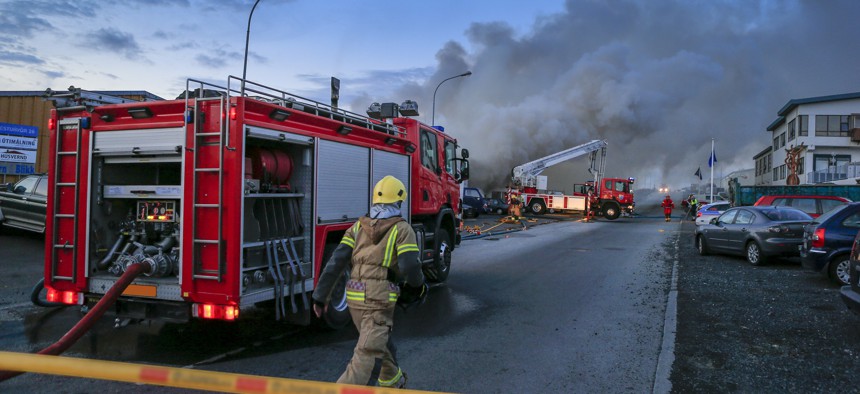Why emergency calls sometimes can’t get through

GettyImages/ Arctic-Images
Tragedies like Highland Park, Uvalde and Buffalo keep happening. We must upgrade our 911 systems to prevent robocalls and network hogs from clogging the network.
The Gun Violence Archive reported 45,027 gun-related deaths in the U.S. in 2021. During the shootings in Highland Park, Illinois, and Uvalde, Texas, hundreds of people used their cell phones to reach law enforcement or check on their loved ones all.
We’re telecommunications guys, not gun violence experts, but we are in a position to sound the alarm on an issue that’s related to these types of emergencies, whether they’re the result of man-made violence or natural disasters such as fires, floods and hurricanes. In a crisis, victims, their families and friends and onlookers rush to their cell phones; over 80% of emergency calls are made from cell phones. This sharp increase in the number of calls all placed at the same time puts such a significant strain on networks that many calls simply don’t get through.
The nation’s 911 systems are in urgent need of improvement. The federal government certainly plays a role in determining next steps forward in modernizing Public Safety Answering Points (PSAPs). But ultimately, the cry for upgrades to emergency systems must come from the local and state government workers.
How many people have been left stranded in an emergency having to listen to: “All circuits are busy, please try again later?”
While statistics would help illustrate how severe the problem is, there’s no data that quantifies how many calls fail to get through to PSAPs. The National Emergency Number Association reports that 911 receives about 500,000 calls daily in the U.S., but there’s no data on how many calls fail to get through in an emergency.
But we do know that the Federal Trade Commission says robocalls are out of control. It believes the estimated annual cost from illegal robocalls is approximately $13.5 billion. These annoyance calls are not only a pain in the backside – not to mention the Federal Communications Commission’s biggest complaint; they clog overwhelmed networks. These calls prevent legitimate and even urgent emergency calls from getting through.
Consequently, robocalls are choking our emergency safety lines, hogging valuable lines with calls people don’t want while preventing some important calls from getting completed.
While the FCC claims it has the situation under control with the STIR/SHAKEN law, that’s far from the truth. We need an urgent upgrade to our telecommunications infrastructure to better manage the increasing intrusion of unwanted communications and their impact on emergency calls.
The solution is simple: A system where only legitimate, authorized parties can communicate with each other. In this system, the receiver of the call can decide who will initiate a call to them. When we prioritize emergency calls and tie in self-sovereign identification, the right help is provided to the right people.
Getting rid of spam and reducing robocalls is a critical step to ensure everyone can get through to 911 in an emergency. We have the technology to verify and identify legitimate callers and screen out the fraudsters. We have the tools to ensure that every single important call gets through on the first attempt.
It’s a social disgrace that we haven’t updated our emergency response systems with modern technologies. How many more lives could be saved?
When there’s an emergency, people want their emergency calls to go through. Callers want to be verified and identified. And they want to believe the PSAP has the capacity to serve. For us, getting rid of spam, reducing robocalls, should provide piece of mind to people who know their calls will be answered when there is an emergency.
It’s time to deploy the telecom innovations that we’ve been working on for years to reduce congested networks, stop unwanted calls and keep citizens safe.
Our very lives and those of our loved ones depend on it.
Jeff Pulver is an innovator in the field of Voice over Internet Protocol (VoIP). He was instrumental in changing how the FCC classified VoIP in 2004, paving the way for the development of video and voice internet communications. The co-founder of Vonage, Jeff has invested in over 400 start-ups.
Noah Rafalko is a pioneer in Telephone Number ID, a modern blockchain solution that restores trust in communications. Noah is founder and CEO of TSG Global, Inc. which provides voice, messaging and identity management services for SaaS companies and large enterprises.





